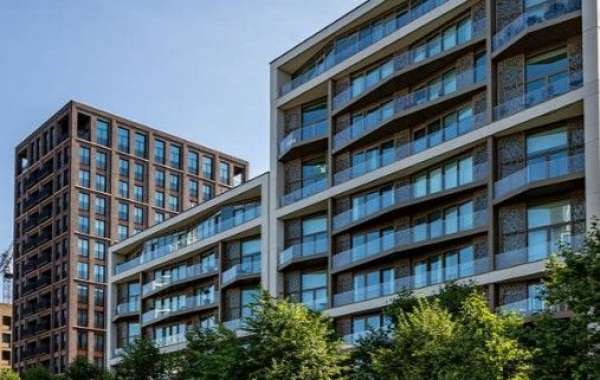It plays an important role in modern architecture, serving practical and aesthetic functions in a commercial building. It enhances energy efficiency and natural light, adding to the overall design and comfort of the space. Commercial glass manufacturer are instrumental in providing advanced glazing solutions to meet the needs of various commercial buildings, from large office towers down to local shopping centres for all internal and external glass.
Commercial Glass: An Important Activity
In commercial buildings, glass is no longer a passive material used for aesthetics but an intrinsic part of the performance of the building itself. An appropriate glazing system can minimise energy usage by controlling heat gain and loss, lowering general heating and cooling costs. For example, C.U.IN glazing technology, invented by Crystal Units, reduces up to 7% heat loss, making it more efficient than traditional double or triple glazing. It keeps the commercial building space thermally insulated, reducing the consumption of HVAC systems. Also, the acoustic benefits of modern glazing solutions are considered highly valuable in commercial settings. Busy office environments, retail outlets, and hotels require more excellent sound insulation for a quiet interior. Advanced glazing solutions provide this, thus being an essential element in commercial construction.
Commercial Manufacturing of Glass: Advances
Commercial glass manufacturers are always in a notch to meet the trends in sustainable building practices. Amongst key trends in the industry is a move to ensure energy-efficient glazing. Technologies such as low-emissivity coating reduce the amount of ultraviolet and infrared light passing through the glass without compromising visible light transmission. It ensures that while indoor temperatures remain regulated, commercial spaces maximise natural daylight.
In addition to energy efficiency, commercial glass manufacturers have developed glazing systems that provide better durability and safety. Laminated or toughened glass is used in high-traffic area, where it provides higher resistance against fracture. Manufacturers of active smart glass technologies change their transparency based on light conditions for privacy and energy efficiency.
Customisation and Aesthetic Flexibility
Among the significant selling aspects of commercial glazing is its flexibility in design. In other words, manufacturers proffer bespoke options whereby architects and builders may have the glasses tailored according to their applications’ aesthetic and functional specifications. The various tints, coatings, patterns, and varying levels make the array overarching. Such customisation is needed in commercial spaces, where branding and design cohesion are important.
Sustainability and Environmental Impact
Sustainability is a growing concern in the building industry; thus, commercial glass manufacturers are doing their part by reducing their environmental footprint. Most facilities have ways of recycling glass and minimising production waste. In addition, with concerns about the circular economy, manufacturing glasses that can be recycled or reused at the end of life has been one key consideration.
Conclusion
Innovation, sustainability, and personalisation remain key commercial glass glazing industry drivers. New glazed systems improve a building’s energy efficiency and acoustic comfort and enable striking architectural designs that enhance the aesthetic value of commercial space. As demand increases for eco-friendly and high-performance materials, the need will continually stimulate each evolution in advanced solutions so that commercial glass manufacturers are able to keep pace with the needs of the modern built environment.
Source: https://xuzpost.com/commercial-glass-glazing-need-of-modern-architecture/




